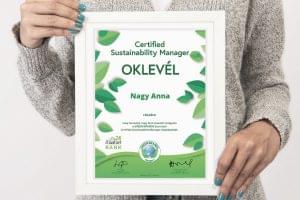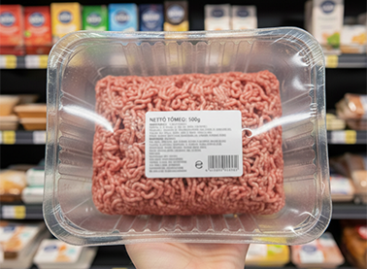Magazine: Dark clouds are gathering
After the breakout of the pandemic numerous environmental protection experts thought that the lockdown might be a turning point in reducing consumption and protecting the environment. Today we can see that this won’t be the case, people’s desire for things to get back to normal – the way they were before the pandemic – is simply too strong. Still, the climate is changing and ecosystems are falling apart.

Katalin Sipos
director
WWF
Katalin Sipos, country manager of WWF talked to our magazine about the task of fully transforming our social and economic systems. In order to be able to do this, people first have to understand that they are in big trouble. Global environmental problems are already here, they are present in our lives.
Cautious optimism is needed
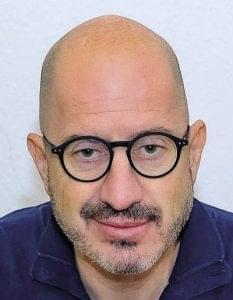
András Wiszkidenszky
regional director
GREEN BRANDS
Not so long ago climate protection was just a foggy concept in Hungary, but today it already means a series of actual steps taken.
András Wiszkidenszky, regional director of GREEN BRANDS informed that their experience is: companies that apply for earning the trademark regularly are performing better in each audit. Quite often even first-time applicants score surprisingly high in the GREEN BRANDS index, thanks to the high number of eco-friendly solutions available – and to the more and more frequent bottom-up green innovations. The regional director added that although we can be optimistic from a technological point of view, it must be kept in mind that one solution won’t solve all the problems, there is still a long journey ahead of us.
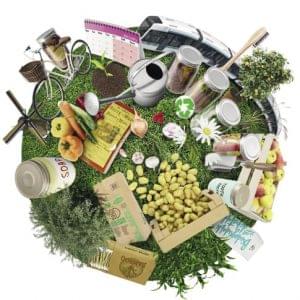
Support to the agriculture presents itself as a promising opportunity to make economy and society more sustainable and healthy
Farming done better
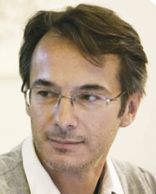
Pedro Arias
economist
FAO
‘Build back better’ is the slogan of the Food and Agriculture Organisation (FAO) of the United Nations for the post-pandemic period.

Valeria Rocca
advisor on Sustainable Development
FAO’s economist Pedro Arias opines that food retailers passed the test during the pandemic and probably agriculture suffered the least from the effects of COVID-19, therefore the sector can be an engine of the rebuilding process. Still, this would require major changes in the system of agricultural subsidies. One of the lessons learned from the pandemic is how much the agri-food sector can contribute to building a healthier and more sustainable society and economy. //
Waste management faces problems

Norbert Höflinger
strategy director
HWD Recycling
Norbert Höflinger, strategy director of HWD Recycling Kft. talked to us about the pandemic making people realise meetings and shopping can also be done online, without having to travel for hours. In his view currently the banning of single-use plastics is in the centre of attention, together with managing the waste that will replace these items – for which there aren’t even plans yet. Even more so, because the trade is occupied with the introduction of the concession system, which enters into force in July 2023. //
DS Smith: Circular packaging strategy

Levente Szabó
sales and marketing director
DS Smith
DS Smith has developed the pioneering Circular Design Metrics method to identify how much a packaging design is eco-friendly and how it can be made more sustainable. Levente Szabó, sales and marketing director of DS Smith Packaging Hungary told: last year they launched a sustainability strategy. As part of this, every DS Smith packaging material designer learned the Circular Design Principles approach, 100 percent of the paper used is recycled or comes from a certified supplier and they reduced CO2-emission by 23 percent since 2015. //
Working towards carbon-neutrality
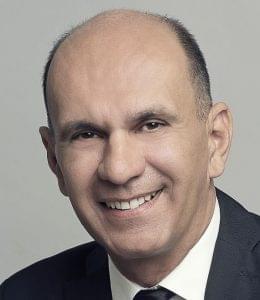
Zsolt Miklós
managing director
Rondo
Rondo Hullámkartongyártó Kft.’s long-term goal in the area of sustainability is to achieve carbon-neutrality. The company practically fully complies with the requirements of the circular economy. Managing director Zsolt Miklós explained that it is a priority to use 100 percent recycled raw material in corrugated board production. Future plans include implementing projects for the utilisation of more green energy. //
GREEN BRANDS offers sustainability manager courses
In early November GREEN BRANDS Hungary will launch a sustainability manager training programme. The 6-month courses will consist of 5 modules and cover 10 topics, from theoretical background through measurements and reports to business management and CSR. Those who complete the hybrid course (there will be both online and physical classes) will earn a CERTIFIED SUSTAINABILITY MANAGER (CSM) certificate. Registration for the programme starts in August. //
Sustainable in every respect

Réka Nagy
customer marketing
manager CEE
Essity
Essity’s operations have been based on the so-called Life Cycle Management for nearly 30 years, so the company’s processes are planned with sustainability considerations in mind. Essity has made a pledge to only use 100 percent recyclable packaging material by 2025, which is made of recycled material or material from renewable sources in 85 percent.
Réka Nagy, Essity’s customer marketing manager CEE added: they would also like to cut energy and electricity use by 25 percent until 2030. Plus plans include reducing the environmental footprint – resulting from raw material use, transportation and waste generation – by 18 percent. //
Related news
Oversized packaging not only deceives the customer, but also violates the principles of the circular economy
🎧 Hallgasd a cikket: Lejátszás Szünet Folytatás Leállítás Nyelv: Auto…
Read more >High-value shopping basket and more conscious shoppers: growing demand for domestic and healthy products
🎧 Hallgasd a cikket: Lejátszás Szünet Folytatás Leállítás Nyelv: Auto…
Read more >Related news
OKSZ on the extension of the margin stop decree
🎧 Hallgasd a cikket: Lejátszás Szünet Folytatás Leállítás Nyelv: Auto…
Read more >

